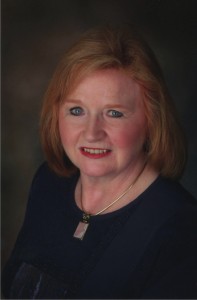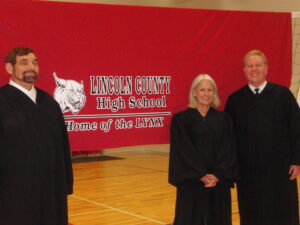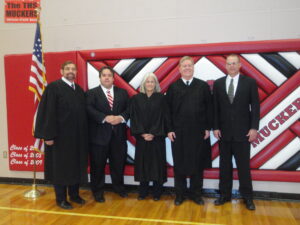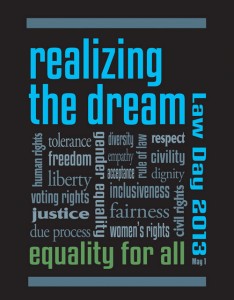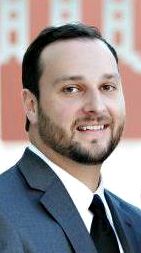By David Gordon, Academic Coordinator, Judicial Education Unit, Nevada Supreme Court
Employee turnover can produce both positive change and increased challenge. Among the positive changes are fresh vision, a renewal of enthusiasm, and a chance to leave behind past issues that live on for no other reason than the memories of those involved. Challenges may include a loss of human capital in the form of skills, training and knowledge, as well as a loss of trust and working relationships with colleagues and clients.
The impact of turnover within a judicial education organization may be amplified by the small size of a judicial education staff, or the scarcity of qualified judicial educators. First, this article will consider the role played by the organization’s size.
Judicial education organizations vary widely among the different state court systems. A judicial education unit with four staff members will be impacted to its core when two employees leave. An education services division with 25 staff members will be more easily able to spread the work among remaining staff. Jeff Schrade, Director of the Education Services Unit in Arizona relies on cross-training to exercise flexibility when dealing with staff turnover. Nevada’s four-person Judicial Education Unit is necessarily cross-trained in order to deal with things as routine as the occasional sick day. Other judicial educators have stated that in a large organization, the value of cross-training can be diluted by an emphasis on specialization.
Experienced judicial educators are a rare commodity, and it is rare that a fully trained and experienced judicial educator joins a judicial education organization. Judges indicate that the characteristics they seem to value most in judicial educators are confidence and trust: confidence that the educator will pursue the best faculty for a topic, and trust that judicial education conferences provide an environment in which judges feel free to speak openly and honestly. One judge described turnover in a judicial education organization as a delicate proposition because the judges enjoy personal relationships with the judicial education staff, and yet expect the utmost in professionalism. Judges do value consistency and institutional knowledge in judicial educators.
One judge stated that judges don’t like turnover in judicial education organizations because the confidence and trust must be earned; another stated that turnover can create opportunities for recruitment of more qualified candidates who can assist in furthering more modern judicial education approaches and objectives. Still another judge said that he is more likely to agree to serve as faculty when asked by a staffer whom he believes has an in-depth knowledge of the value of his contribution.
All judicial educators must exhibit competence in adult learning theory, knowledge of the issues relevant to the judiciary of their state, and sensitivity to the political realities that permeate the life of a judge. Questions remain. Is there more value to having educators with experience as attorneys? Or is the best educator steeped in adult learning theory? There is no question that educators can only benefit from time spent observing court operations. As one judge told me, educators who observe court operations would be in a better position to tailor curricula to everyday practical situations, and court relationships could broaden the judicial faculty pool. Another judge said he believes the best instructors are often other judges. As judicial educators work with faculty judges, a shared vocabulary and a recognition of common problems faced in court can only enhance curriculum development.
Turnover within a judicial education organization will always have far-reaching impact. It may be positive or challenging, but it remains that the new judicial educator will have to work hard to establish trust and confidence… the judicial educator’s stock in trade. No less important is providing guidance to the consumers of judicial education so curricula are developed with appropriate emphasis on learning styles and learning environments.
—–
David Gordon is the Academic Coordinator for the Judicial Education Unit at the Nevada Supreme Court, a position he has held since 2007. Prior to joining the Judicial Education Unit, he was the Supreme Court’s Certified Court Interpreter Program Coordinator. Mr. Gordon is a former Naval Officer and military linguist.
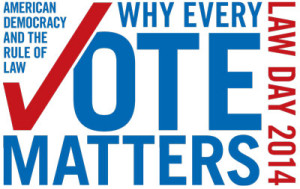 14 Law Day theme is “American Democracy and the Rule of Law: Why Every Vote Matters”. Driving forces for this theme are the approaching 50th anniversaries of the Civil Rights Act of 1964 and the Voting Rights Act of 1965, as well as the continuing issues related to ensuring that all Americans have the opportunity to participate in our democracy.
14 Law Day theme is “American Democracy and the Rule of Law: Why Every Vote Matters”. Driving forces for this theme are the approaching 50th anniversaries of the Civil Rights Act of 1964 and the Voting Rights Act of 1965, as well as the continuing issues related to ensuring that all Americans have the opportunity to participate in our democracy. Please join us in welcoming the following new NASJE members:
Please join us in welcoming the following new NASJE members: